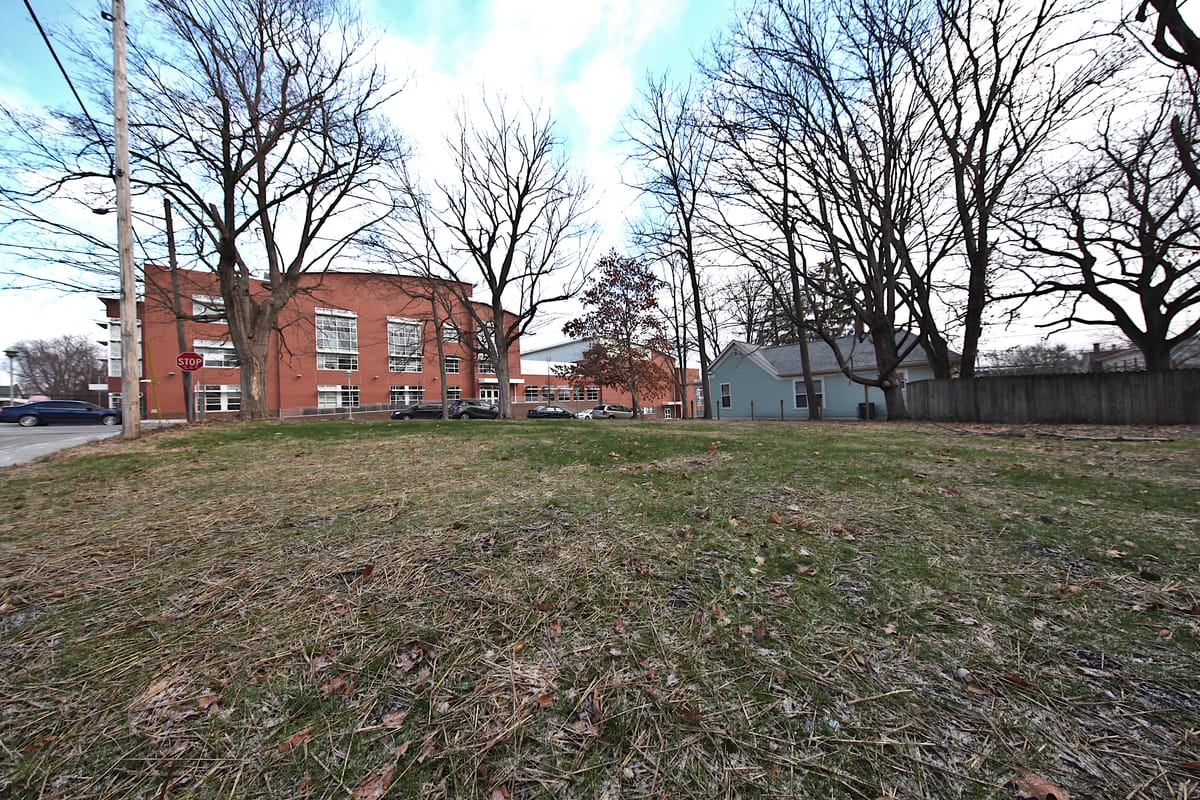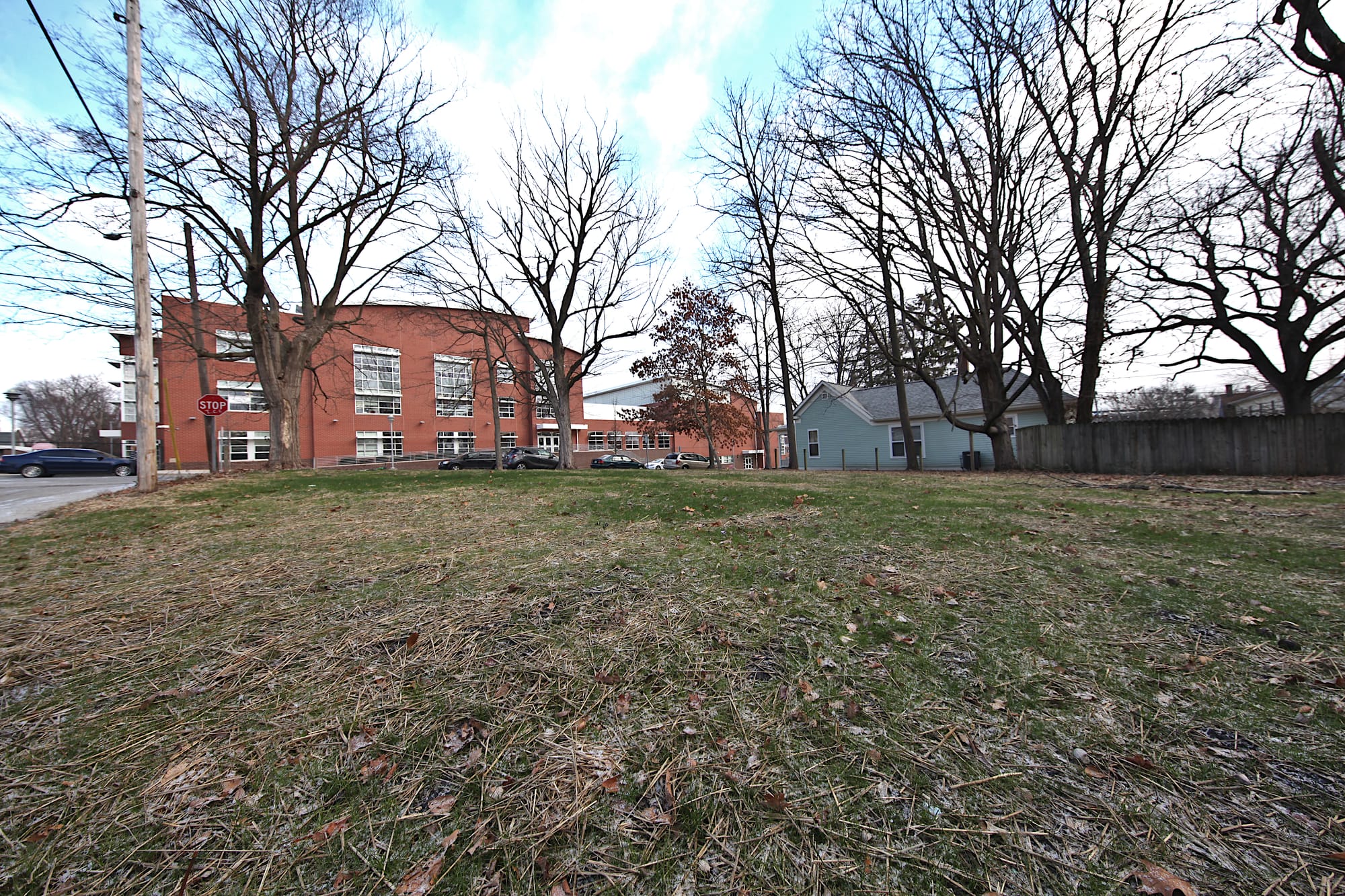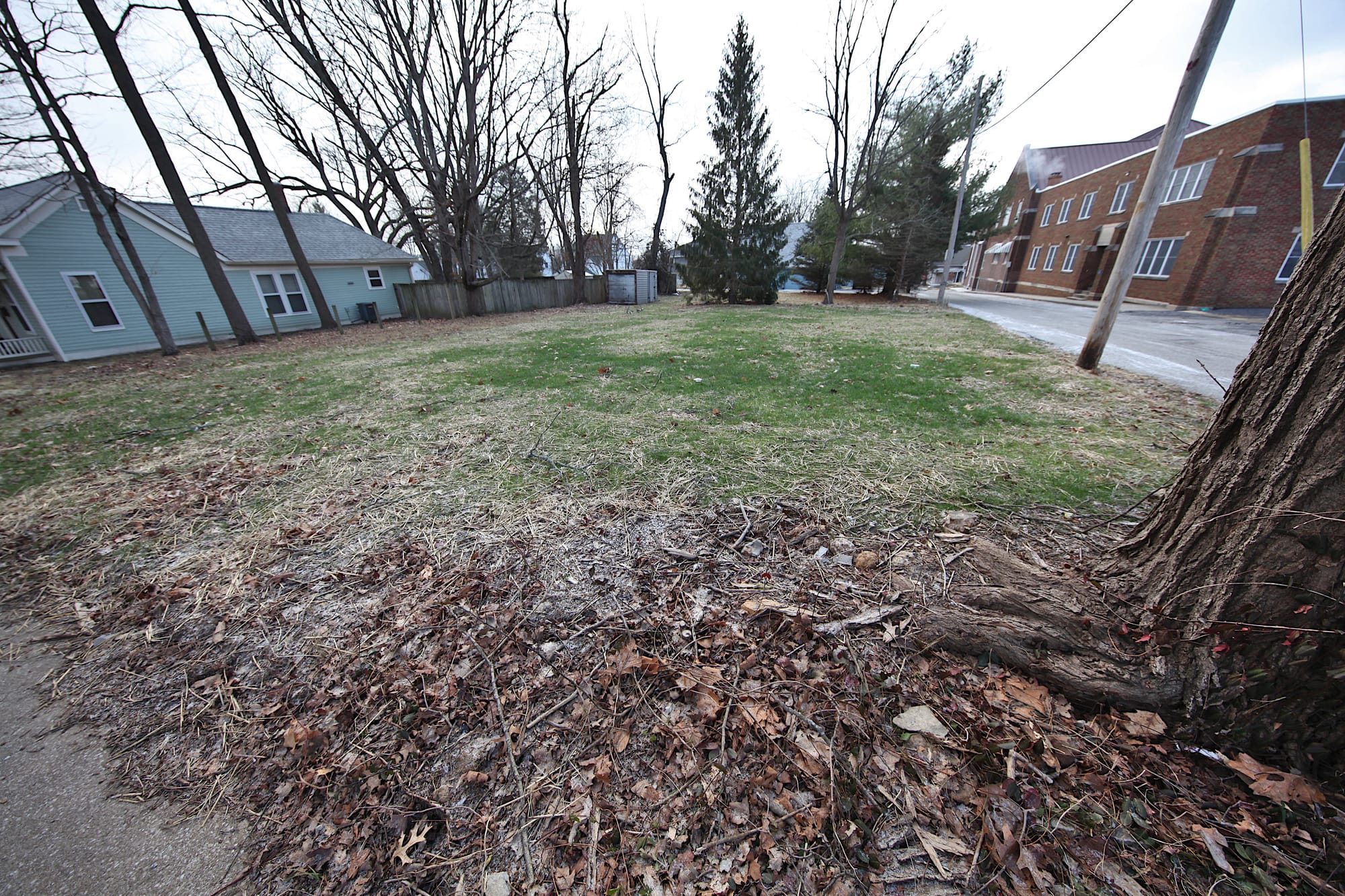Owners of demolished house fight Bloomington’s $83.5K fine two ways: Court action, appeal to BZA



After the owners of a house on West 7th Street demolished it last year, the city of Bloomington imposed an $83,500 fine—for not first getting a certificate of zoning compliance.
Before the house was demolished, it was reviewed for possible historic designation. According to city officials, it was still under the review process, when it was demolished.
The city imposed the fine in late October, after the house was demolished on Sept. 27.
What has happened since then?
Baker and Holdman immediately appealed to the city’s board of zoning appeals (BZA). A bit later, in mid-December, they filed a mandamus action in Monroe’s circuit court.
In the summer, the city’s historic preservation commission (HPC) had delayed the demolition of the house for 90 days, in order to put the property through a review process. That process could have led to its designation by the city council as a historic property.
The start and end date of the 90-day period is part of the argument the owners are making. They contend that the 90-day period expired. And after that, a certificate of zoning compliance should have been issued, they say. Only after expiration of the 90-day window, which ended the city’s process, was the house demolished, according to the owners.
The BZA was initially going to hear the case at its November meeting, but it was put off until December. In December, it was put off again, until January. This Thursday’s BZA agenda shows the case pushed another month, to February.
According to city attorney Mike Rouker, the continuation of the case was by mutual agreement with the property owners and due to scheduling reasons unrelated to the court action. There’s no need to conclude the court proceedings before the BZA hears the case, Rouker said.
The property owners are represented by local attorneys Christine Bartlett and David Ferguson.
Crucial in the court action, as well as to arguments that will eventually be made to the BZA, is the timeline for the 90-day window of demolition delay. The basic argument is based on the idea that the demolition of the house came after the expiration of the 90-day window for a demolition delay, and that the end of the 90-day delay was the end of the city’s review process.
What the owners are contending is that a certificate of zoning compliance was owed to them after the 90-day deadline expired, and the failure to issue the certificate reflected a failure to execute a required duty under the law.
A mandamus complaint is a way to get a court order that mandates someone perform their duty as defined under some statute. The two people against whom the mandamus complaint was filed are Bloomington’s director of planning and transportation, Terri Porter, and Jim Gerstbauer, who’s the building commissioner for Monroe County’s building department.
According to the complaint, Porter and Gerstbauer have a statutory duty to issue certificates of zoning compliance and demolition permits, respectively.
Gerstbauer has already answered the complaint, in part by arguing that he could not issue a demolition permit, without first having a certificate of zoning compliance from Bloomington. In legal language, that translates as: “[A] condition precedent to issuance of a demolition permit, such as issuance of a certificate of zoning compliance by the City of Bloomington, has not been satisfied.”
Why did Porter have to issue the certificate of zoning compliance, according to the mandamus complaint? It’s because the 90-day window expired, without any action by the city’s HPC to place the house under interim protection, according to the owners.
According to the complaint, the demolition application to Monroe County’s building department was made on May 17, 2019. More detail is provided in the paperwork submitted to the BZA. The owners contend that what started the 90-day clock ticking was when the city of Bloomington placed a sign in the yard of the property at 523 West 7th St. on or around May 22, 2019.
According to the owners, even if the clock started on June 7—the date cited by a city official—that puts the Sept. 27 demolition after the expiration of the 90-day window.
The resolution adopted by the HPC on Aug. 8, 2019, did not explicitly state the HPC was placing the house under interim protection. It said: “[T]he HPC recommends its historic designation under Title 8 of the BMC to the Common Council with the attached map.”
According to the papers filed by the owners with the BZA, it’s not even clear that the HPC could have extended interim protection to the house, if it had wanted to.
Absent the required action by the HPC, and given that the 90-day window had expired, Porter was supposed to issue the permit, according to the mandamus complaint. The related city code requirement cited in the complaint reads as follows:
After expiration of the waiting period provided for herein, which shall include early termination of the waiting period, a certificate of zoning compliance authorizing demolition shall be issued if owner has submitted a complete application and all other requirements of the Bloomington Municipal Code are met.
The papers submitted by the owners to the BZA include more than just the argument based on the 90-day window.
Among the other arguments is one concerning lack of adequate notice to the owners about the meetings of the BZA, when their property would be discussed.
The owners also argue that the way that Bloomington calculated the $83,500 fine is inappropriate, because it uses a part of the city code that allows fines to escalate for repeated violations.
Even if there was a violation, the owners contend, then it was limited to a failure to obtain a certificate of zoning compliance on just one occasion. The papers filed with the BZA state:
If Holdman and Baker failed to obtain a CZC, that is a single action for which they can be fined. They did not, however, fail to obtain a CZC on each day. The alleged violation here, failure to obtain a CZC constitutes a single violation. There has been no allegation that Petitioners have failed to obtain a CZC on more than one occasion.
Also based on the amount of the fine is another argument made by the owners, which cites the prohibition in the U.S. Constitution against “excessive fines.”
According to the owners, deliberations at the Oct. 10, 2019 meeting of the HPC show that commissioners wanted city officials to use other factors besides the code requirements, to arrive at the amount of the fine.
Those factors included “Holdman’s perceived financial status,” according the the owners. In the materials submitted by the owners to the BZA, the factual recitation has one of the commissioners at the Oct. 10 meeting referring to Holdman as a “big bucks guy.”
Other factors that historic preservation commissioners wanted city officials to use to determine the amount of the fine, according to the owners, were: “their perception that petitioners went against the HPC’s desires to preserve the structure, and whether an example should be made of petitioners.”
What’s next? For the mandamus complaint, Porter and the city’s legal department have asked for an extension of time to file an answer. So Porter’s response is now due by Feb. 12.
According to city attorney Mike Rouker, the case in front of the city’s ZBA could, in February, be pushed again to the ZBA’s March meeting—due to scheduling issues, independent of the ongoing court action.




Comments ()